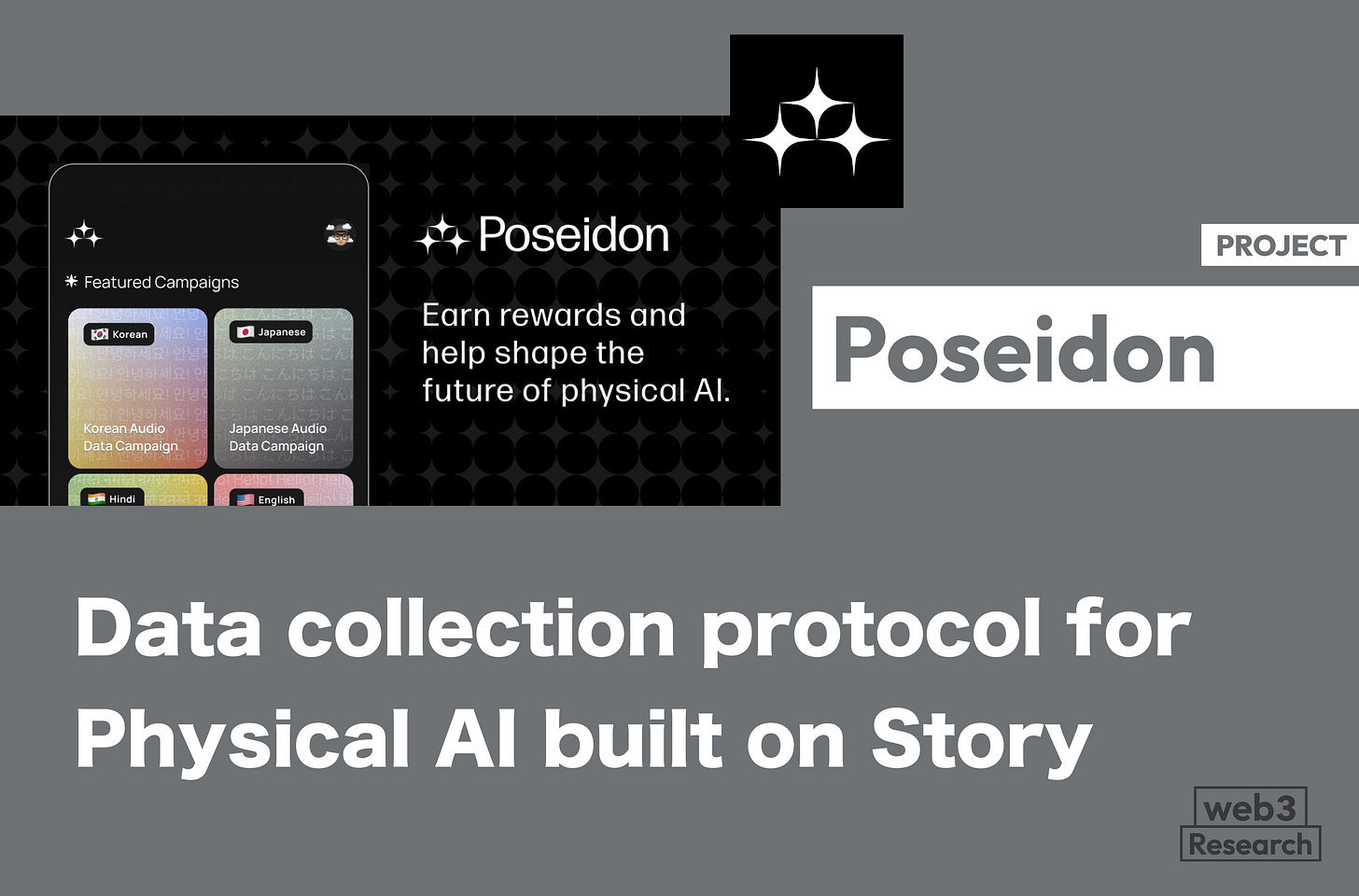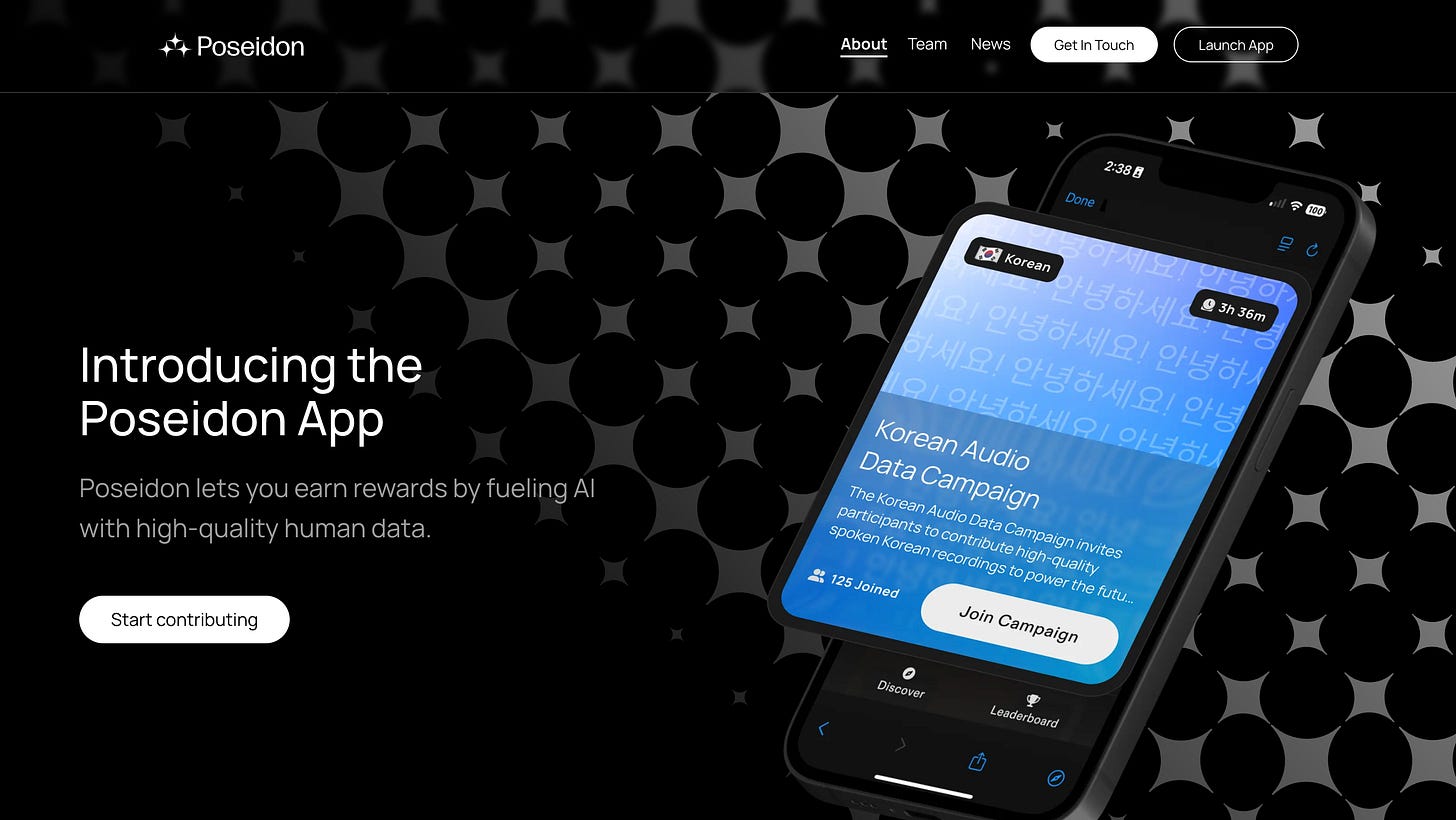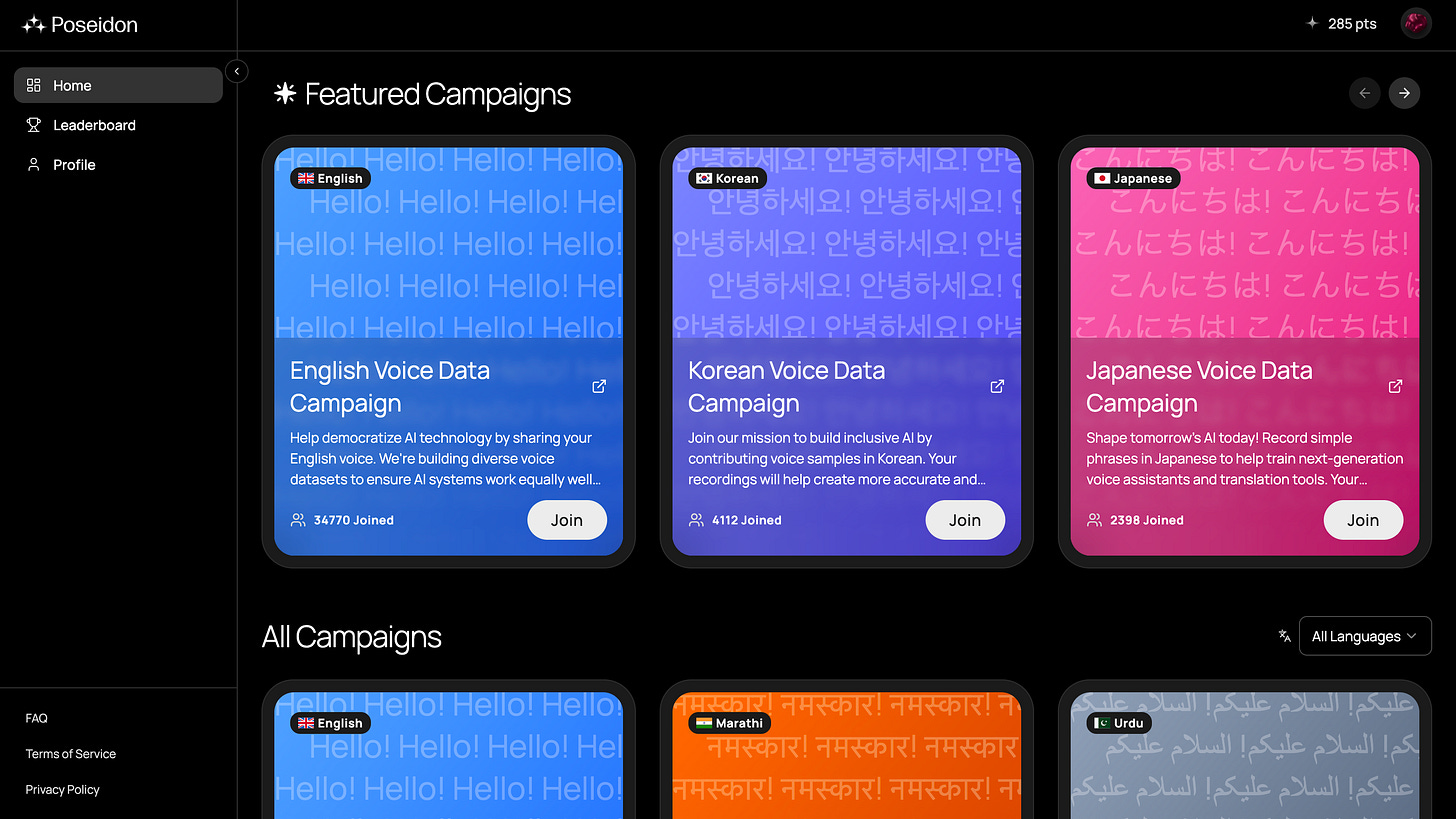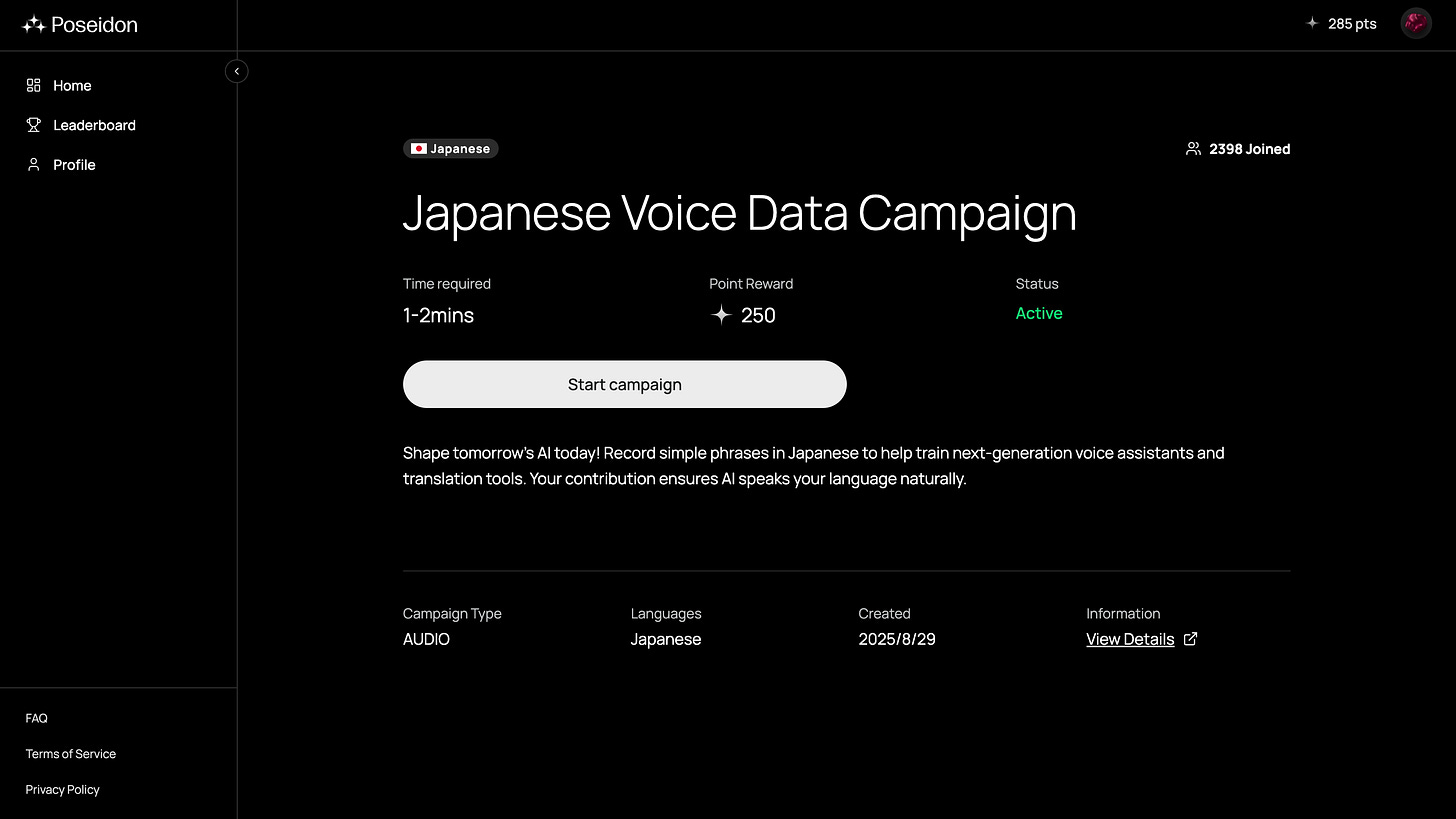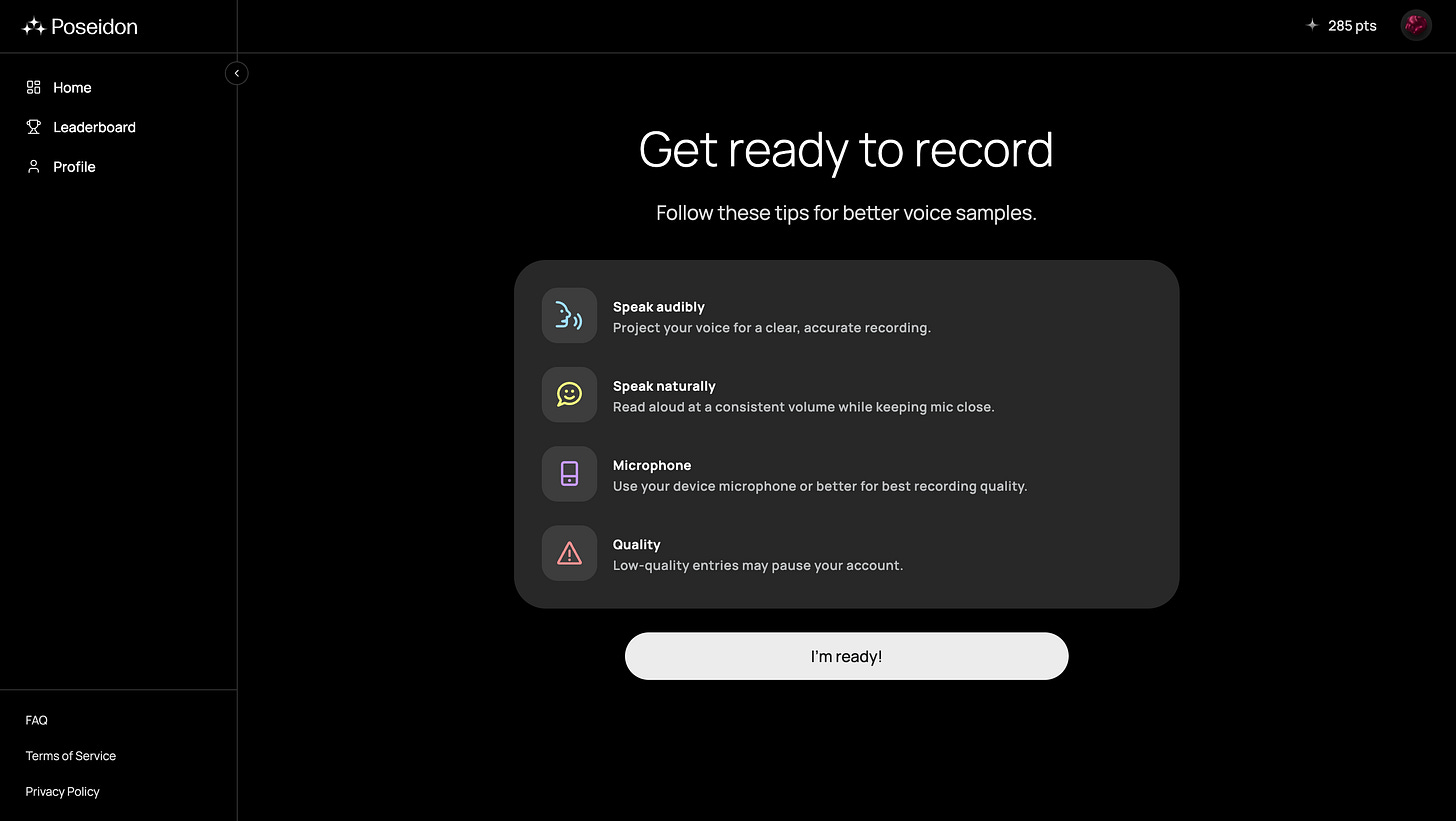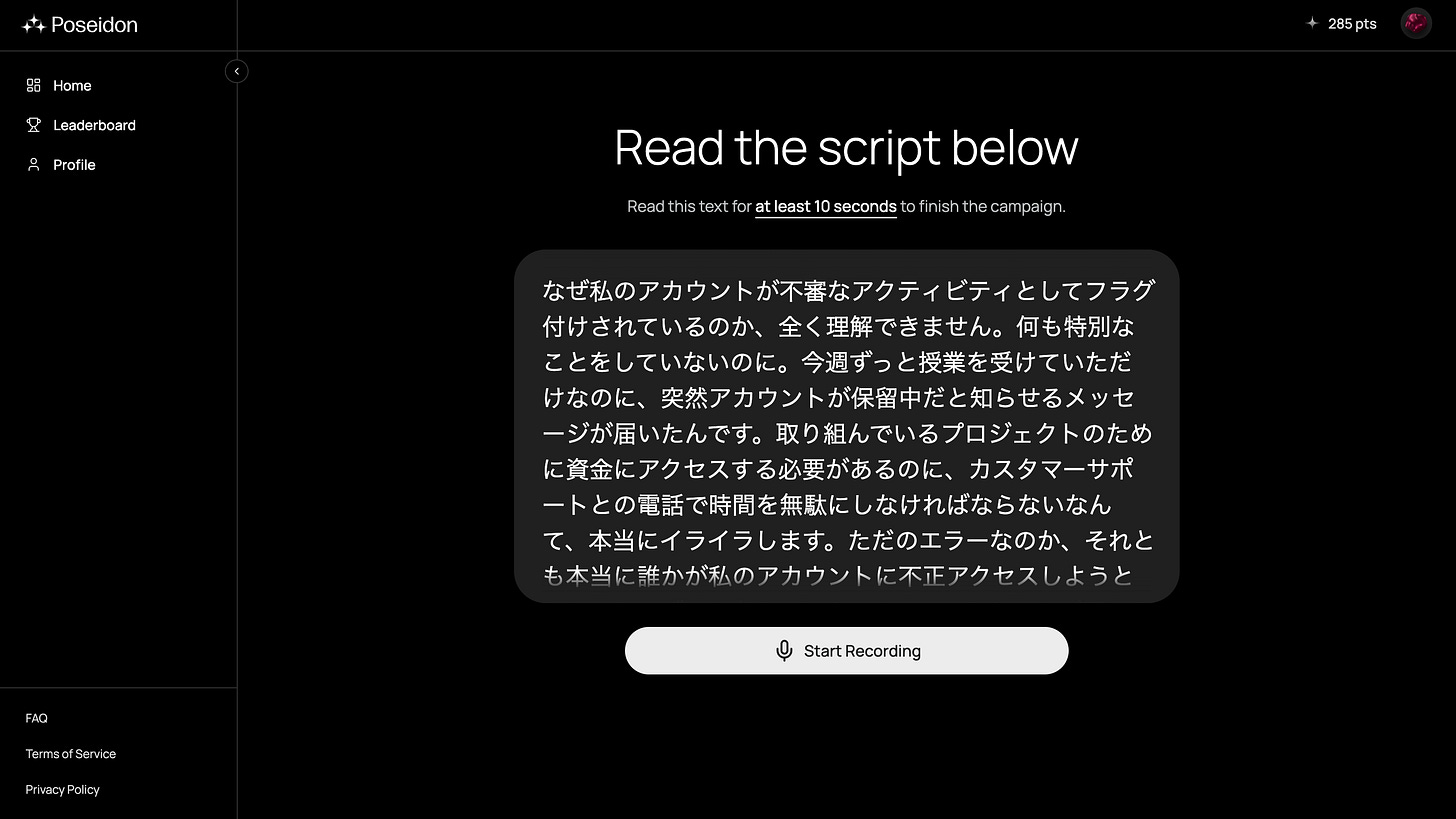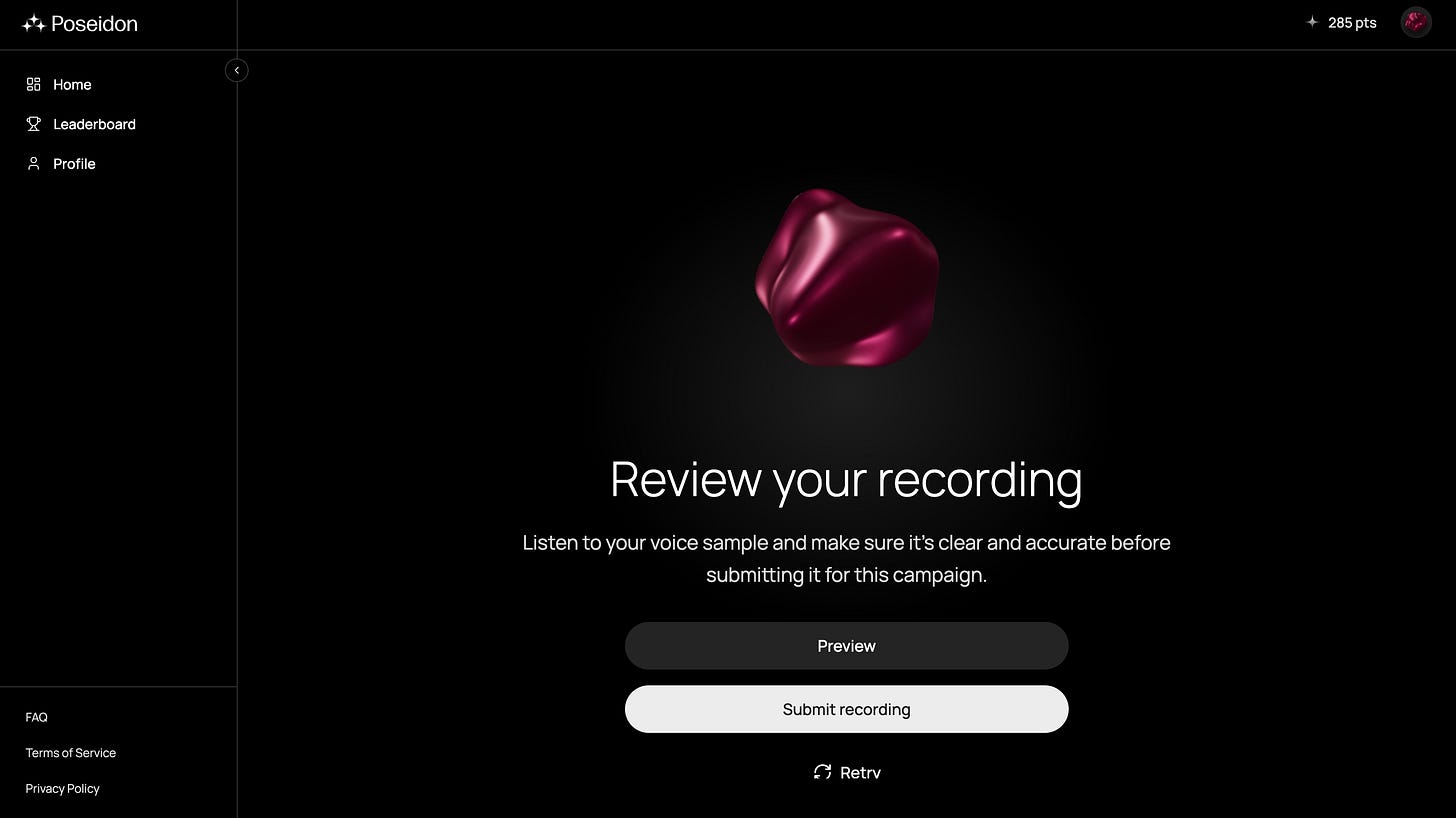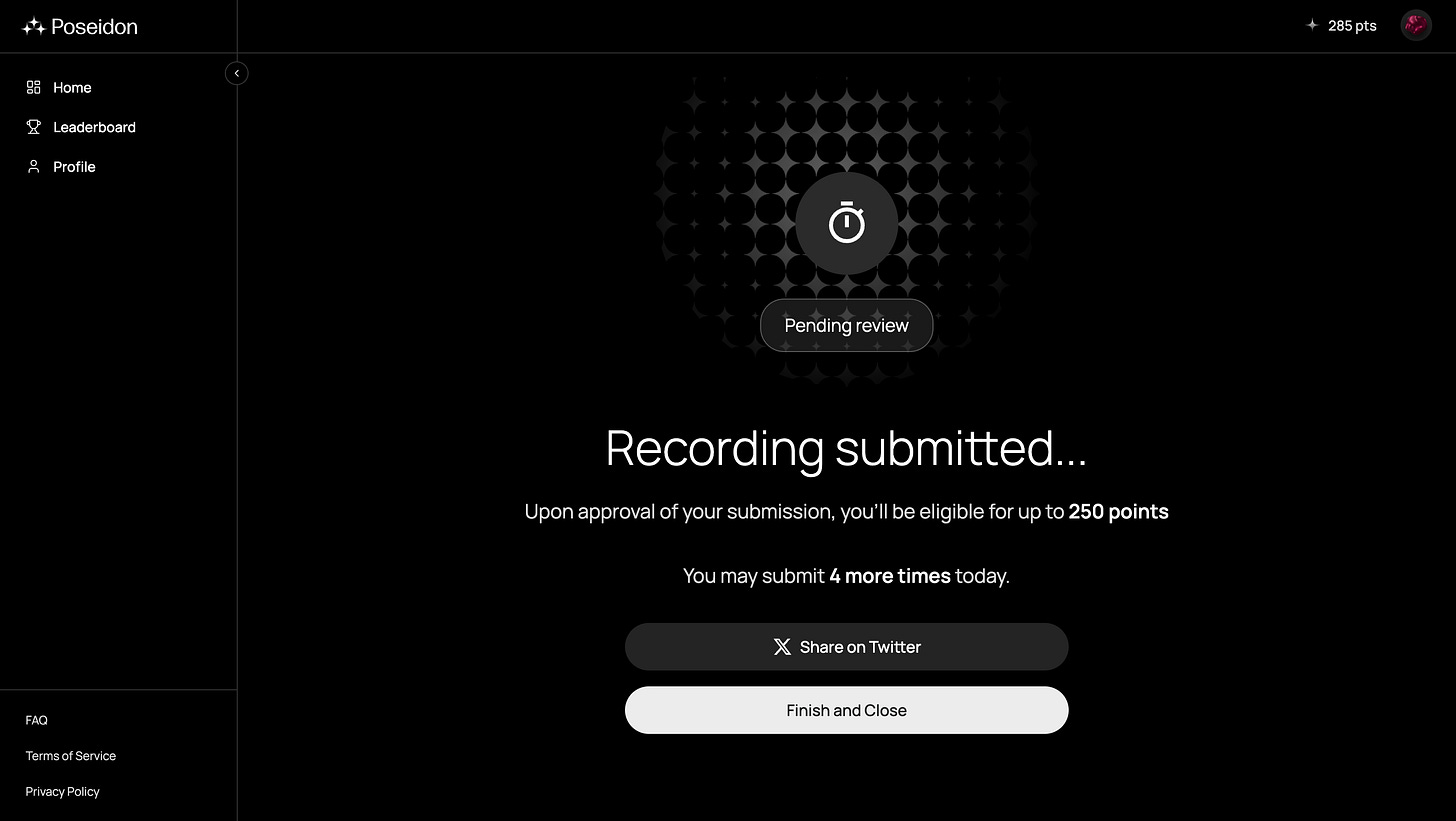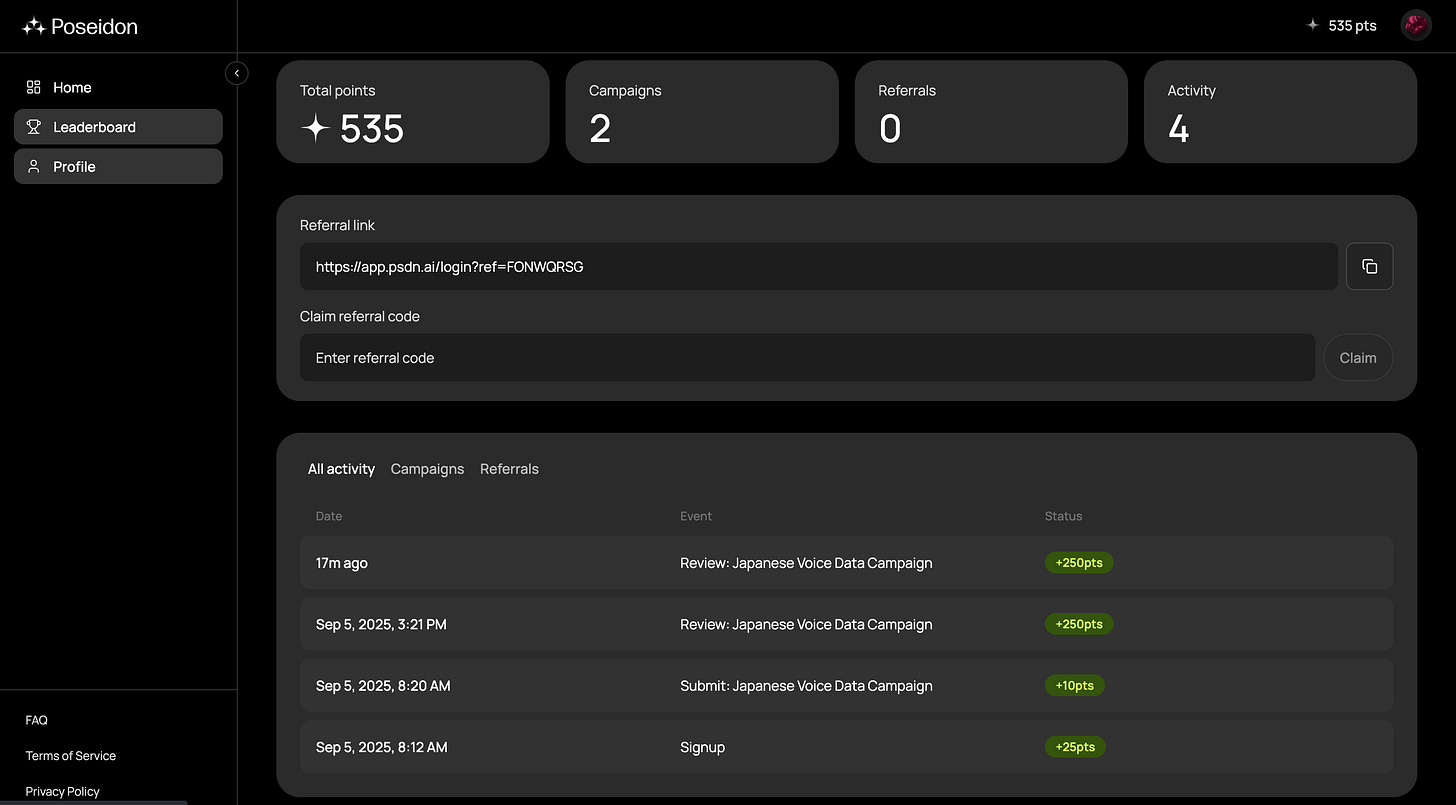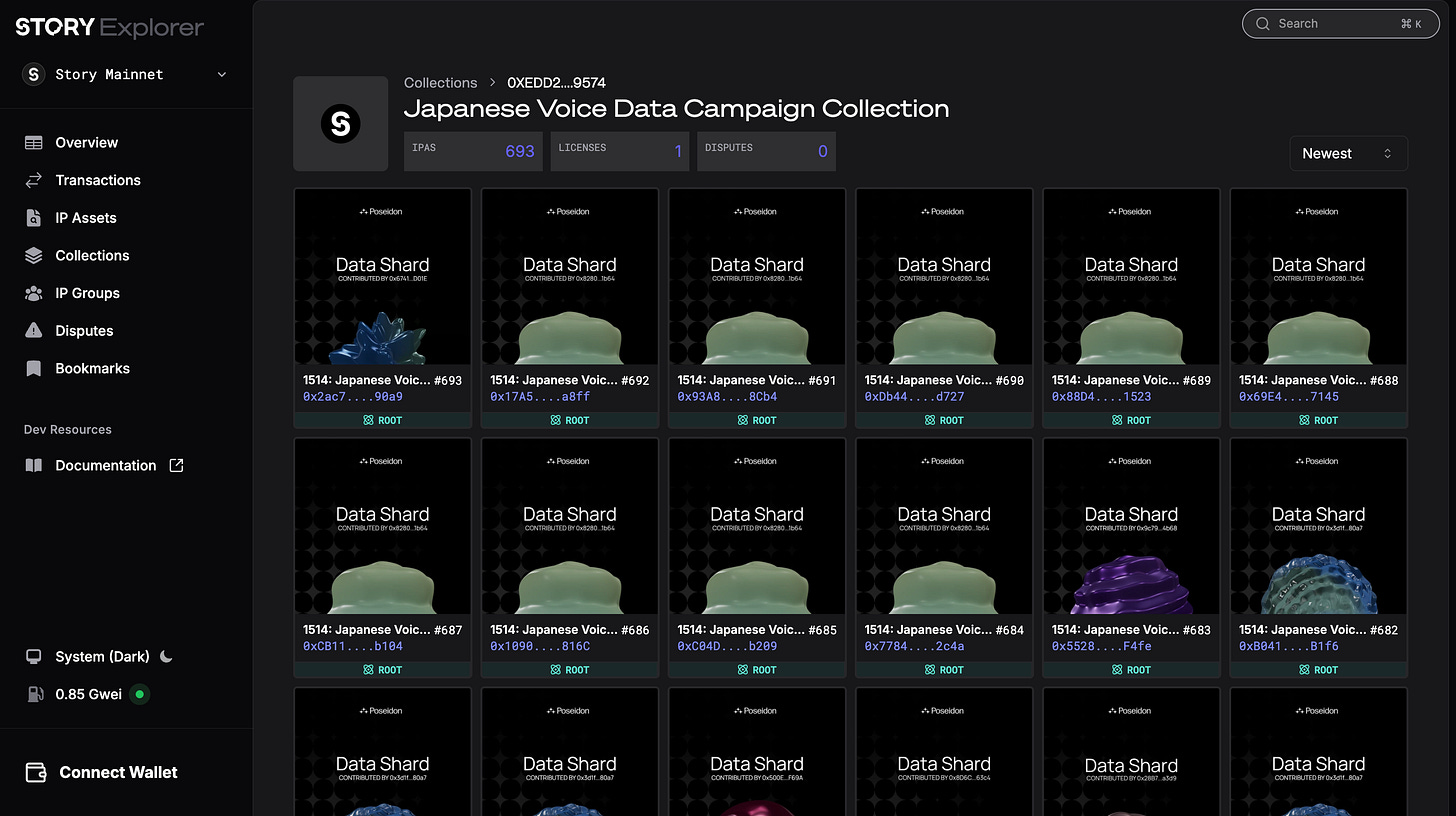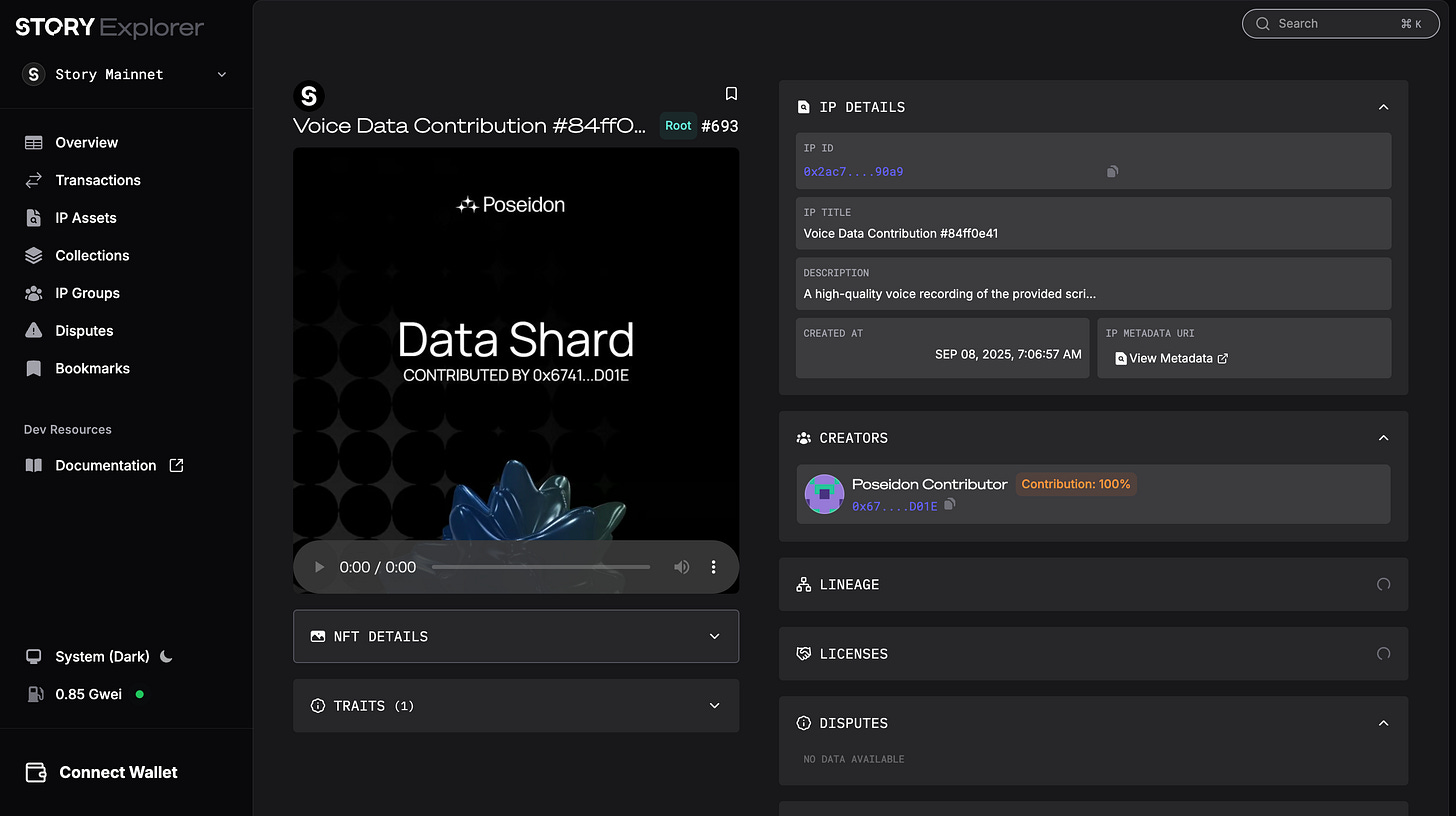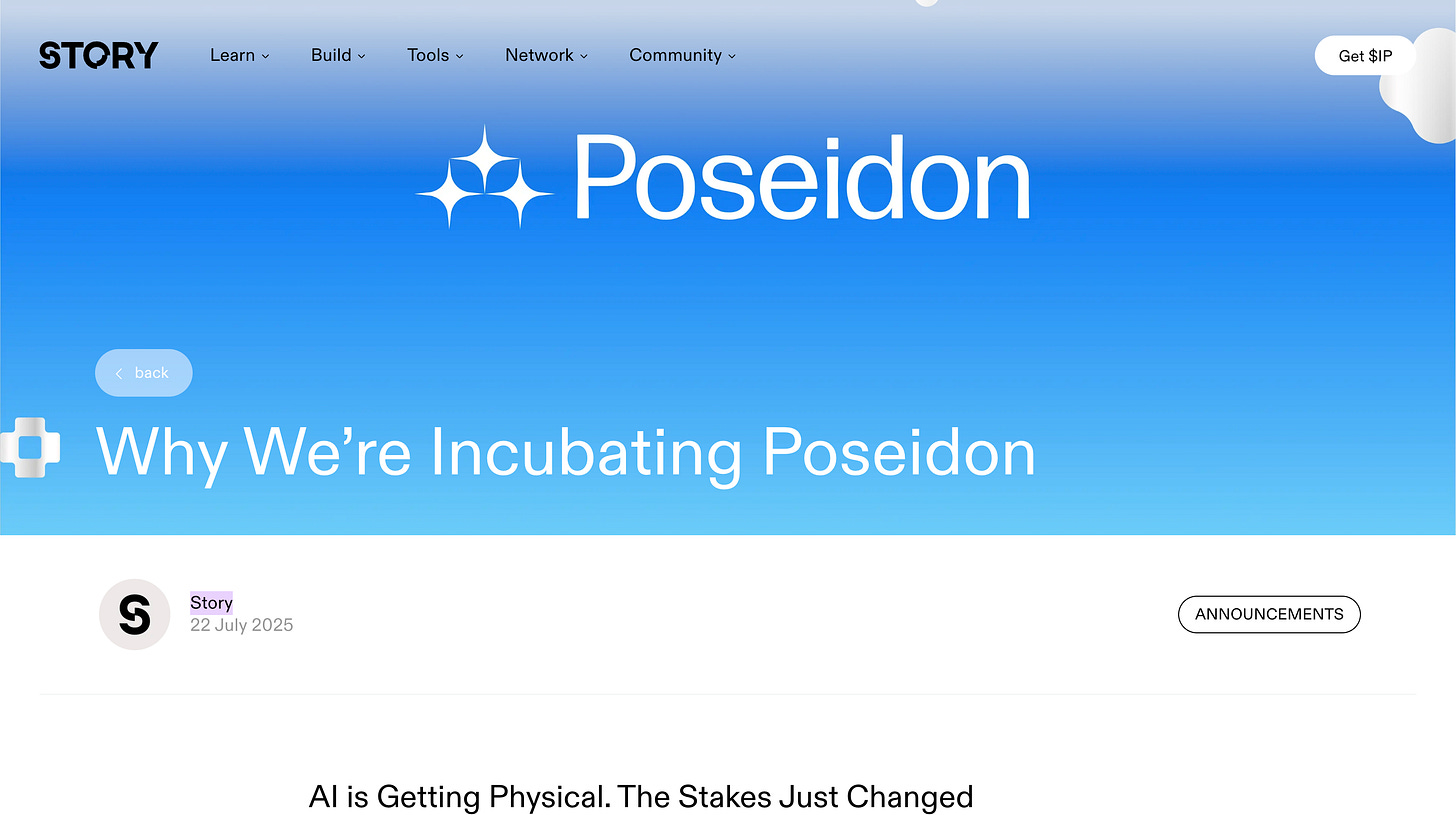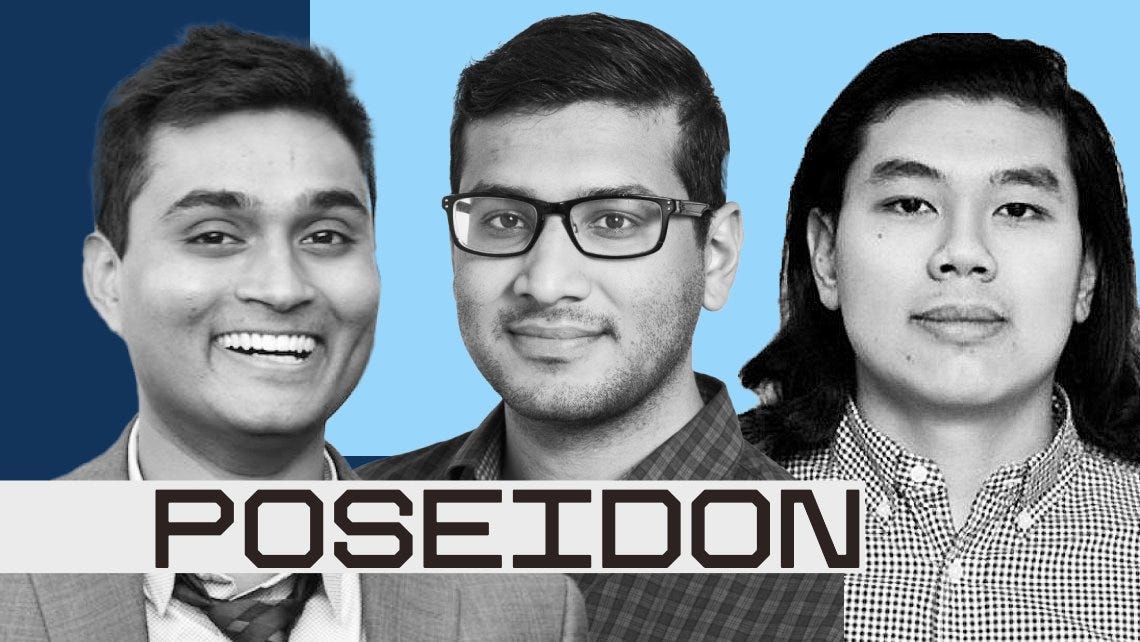【Poseidon】Data collection protocol for Physical AI built on Story / Flagship app for RoboFi market / Voice data collection campaign launched / @psdnai
This is an interesting project that Story is officially supporting.
Good morning.
I am mitsui, a web3 researcher.
Today I researched "Poseidon".
🤖What is Poseidon?
⚙️Technical Mechanisms
🚩 Transition and Prospects
💬Flagship app for the RoboFi market
🧵TL;DR
Poseidon is a data infrastructure on the Story Protocol that aims to supply AI with real-world long-tail/edge case data to replace depleting generic Web data.
Distributed collection of rights-clearing high-quality data for physical/embodied AI, including FPV video, multidirectional audio, and nighttime/worst-weather driving.
Track parent and child IPs in Story's IP graph and incentivize contributors with on-chain licensing and automatic royalty distribution.
Beta application released on 2025/9/3 (voice collection first, automatic wallet and reward points via email/Google); plans to expand in the future as a new chapter of a16z support.
🤖What is Poseidon?
Poseidon is a data infrastructure project built on the Story Protocol, an IP-specific blockchain.
To explain this in more detail, we will first discuss the fundamental challenge facing modern AI development: data exhaustion.
The first generation of AI infrastructure models have evolved tremendously, "fueled" by the vast amount of text and image data available on the Internet. It is no exaggeration to say that these easily available data have been almost entirely harvested by AI developers.
This current situation highlights a challenge in AI development. Since model performance improvement slows down as large amounts of the same type of data are added, the next generation of AI will not depend on increasing the size (number of parameters) of models, but on new types of data that are of higher quality, more diverse, and previously inaccessible.
On this issue, Chris Dixon, founder of a16z Crypto, points out that "AI infrastructure models have already exhausted the most accessible training data," and Poseidon is trying to solve this very problem.
A few more explanations follow.
The next area of innovation in the AI domain is called "Physical AI" or "Embodied AI," systems that operate in the physical world beyond the world on the screen.
This includes humanoid robots, self-driving cars, wearable devices, spatial computing, etc. For these systems, data scraped from the Internet is insufficient. This is because data rich in multimodal, context-dependent, and unpredictable "edge cases" is essential for activity in the physical world.
For example, so-called "long-tail data" such as subjective viewpoint (FPV) video for learning robot operation tasks, voice data for dealing with diverse dialects and noisy environments, and running data at night or under bad weather conditions will be required.
As Sandeep Chinchali, co-founder of Poseidon and Chief AI Officer of Story Protocol, has noted in his research experience, "The 1% of footage that captured the edge cases yielded the greatest improvement in model performance. This type of rare, unstructured, and legally difficult to collect real-world data is the most valuable asset that will determine the performance of next-generation AI.
Poseidon targets this niche and diverse "long-tail" data needed for AI operating in the physical world, such as automated driving and robotics, and provides contribution-based incentives and legal protection for all involved, from data providers (photographers, labelers, etc.) to AI model developers The goal is to.
◼️ Beta Release
Poseidon is such a Poseidon, but on September 3, 2025, a Poseidon app will be released for data providers to participate, allowing anyone to earn rewards by providing data to help train AI models.
They are aiming to eventually collect all kinds of data, but the initial application is dedicated to voice collection.
Poseidon App you will see a screen similar to the one below. Select your language here. Japanese is also available. Note that you do not need to connect to Wallet Connect, your wallet will be automatically generated with your email address or Google login.
Clicking on the Japanese campaign will take you to the following screen, where you can start your campaign.
Then, a manuscript that can be read out in about one minute will be displayed as shown below, and this will be recorded.
I will listen to this myself and submit it back to you.
Then, after a short time, the review is completed and the reward points are transferred.
At this time, it is not clear how information about the tokens or the points earned will be handled, but they will probably be converted to tokens in the future.
As we will discuss later, this project is very focused, with the founders of the Story Foundation serving as founders of Poseidon, so you may want to touch it as a casual DePIN.
↓Referral Link! Please do if you like!
https://app.psdn.ai/login?ref=FONWQRSG
(*This article was written because I was given the release information by a friend of the Story Foundation and thought it sounded interesting. No monetary compensation was received, and I write this article on my own volition, but it is a disclosure. I heard that they want to put a lot of effort into Japan as well.)
⚙️Technical Mechanism
Poseidon's underlying technology is built on the Story Protocol blockchain
Story Protocol is a proprietary L1 blockchain originally designed for original IP registration and license management, on which Poseidon registers and tracks data as intellectual property (IP) to clarify rights and achieve large-scale compliance (legal compliance) when using data. Poseidon has achieved this by registering and tracking data as intellectual property (IP) on the L1 blockchain.
When data is registered on the Story, it immediately becomes the "parent IP" and any subsequent data added by human labeling or AI generation (e.g., annotations and synthetic data) are tied to it as "child IPs.
This creates a genealogical structure called an IP graph, which automatically distributes royalties (usage fee income) from the original provider to the labeler when the derived data is used for training AI models, etc.
This royalty distribution is enforced on-chain by smart contracts, which ensure that the attribution information to all parties is guaranteed in a tamper-proof manner.
The data itself is also treated as a composable (combinable) on-chain asset like NFT, giving the AI model the flexibility to combine and reuse the various data sets it needs.
Poseidon-specific techniques and data collection policies will also be discussed.
Demand-first.First, identify the needs on the part of AI developers, and then launch a data collection campaign commensurate with those needs. Rather than collecting data in the dark, we will collect data efficiently based on the demand for the type of data that is lacking.
Distributed Scale:.A network has been established that allows individuals and organizations around the world to participate as data providers (contributors) to collect a large volume of diverse and highly realistic data. Tools such as SDKs and dedicated applications for smartphones are also provided, allowing anyone to participate in data collection from everyday devices.
Structured validation:.The data provided is organized and inspected by Poseidon's automated curation pipeline. For example, duplicate data is eliminated, formats are standardized, metadata is assigned mechanically, and inappropriate or low-quality data is flagged for detection. In addition, final quality is ensured through a human-in-the-loop process that removes personal information, and human reviewers scrutinize cases that are difficult for AI to determine.
On-chain IP license management:.It integrates Story Protocol's programmable IP license layer with an invariant IP registration ledger to grant clear rights and usage permissions for each data set. This architecture reduces the risk of copyright and license violations when using data, and avoids copyright disputes and data quality issues such as those faced by OpenAI's "Whisper" speech model.
The Poseidon team explains that they "prioritize data collection by targeting cases where AI tends to fail in the real world (edge cases), and each dataset goes through a metadata check and validation by Story's IP licensing mechanism" to ensure that the model covers useful hard case data and is legally The data sets are checked for metadata and validated by Story's IP licensing mechanism.
🚩Transition and Outlook
Poseidon is a new AI data-specific project that is positioned as a Chapter 2 project of the overall Story Protocol, and is being launched and funded by the Story Protocol itself, which is also providing technical and community support.
The development team was formed with Seung Yoon "S.Y." Lee, co-founder and CEO of Story Protocol, serving as Poseidon's president, and AI researcher Sandeep Chinchali and engineer Sarick Shah joined as co-founders.
S.Y. Lee, a serial entrepreneur who served as head of global strategy at Kakao Entertainment in Korea and previously sold a novel platform company he founded for $440 million, leads business strategy and ecosystem expansion at Poseidon.
Sandeep Chinchali is an AI and robotics researcher with a PhD from Stanford University and an assistant professor at the University of Texas at Austin, where he leads a lab on edge computing and networked robots.
In addition, Jason Zhao, another co-founder of Story Protocol, is also a key stakeholder, having announced his decision to step down from his CEO role at Story Protocol to focus on Poseidon as a strategic advisor in August 2025. He is passionate about applying AI to frontier areas such as science, biomedicine, and space exploration through Poseidon.
Such Poseidon raised $15 million in seed funding in July 2025, with the crypto assets division of a16z, which also made a large investment in Story Protocol, serving as lead investor.
Since its launch, Poseidon has also been collaborating with partners for real-world applications. For example, an undisclosed major robotics company has begun to receive data for its AI from Poseidon's network, and a team developing the infrastructure model for voice AI has been sourcing voice data covering dialects from various countries via Poseidon. The team developing the basic model for speech AI is sourcing speech data covering dialects in various countries via Poseidon.
In addition, several university research institutes and Fortune 500 companies (large global corporations) have expressed interest in joining Poseidon and providing data to strengthen their AI development capabilities.
Currently, as mentioned above, they are starting with voice data collection applications, and in addition to expanding that and the data collected, they are developing modules, SDKs, and license integration tools for data providers, and plan to release an early access version by the end of summer 2025 for external developers and partners The company plans to release an early access version by the end of summer 2025 for external developers and partners to try out.
💬Flagship application for the RoboFi market
The final section is a summary and discussion.
Very interesting app, the sense of challenge in the development of AI is quite a shout, especially since voice collection is data that is tied to personal information, making it quite difficult for existing web2 companies to learn on their own.
I suppose it could be done by updating the Terms of Service, but I can easily imagine that users would show aversion to the changed terms.
For them, it makes a lot of sense to utilize blockchain to collect data in a DePIN-like manner. First of all, users are satisfied because they can be allocated a reward for providing data, and companies can collect data without expensive marketing expenses. Also, by keeping those data inscribed on the blockchain, royalty fees can be paid when the data is used for data learning.
So, this kind of talk has been going on for a long time, but surprisingly, I think the market that best matches this most recent market is this voice collection market.
In fact, I have collected audio myself for updating the dialogue AI, and I know how hard it is, because I have created the terms and conditions for this, recruited people to provide audio, had them write in the consent form, etc.
That is why I find Poseidon's solution very attractive.
I don't know how it will develop in the future, but I think the voice collection and RoboFi market will grow considerably, and Poseidon will be the flagship application in that market, so I will touch it a bit more myself and write another article if there are any major developments!
↓Referral Link! Please do if you like!
https://app.psdn.ai/login?ref=FONWQRSG
This is the research for "Poseidon"!
🔗Reference Link:HP / APP / X
Disclaimer:I carefully examine and write the information that I research, but since it is personally operated and there are many parts with English sources, there may be some paraphrasing or incorrect information. Please understand. Also, there may be introductions of Dapps, NFTs, and tokens in the articles, but there is absolutely no solicitation purpose. Please purchase and use them at your own risk.
About us
🇯🇵🇺🇸🇰🇷🇨🇳🇪🇸 The English version of the web3 newsletter, which is available in 5 languages. Based on the concept of ``Learn more about web3 in 5 minutes a day,'' we deliver research articles five times a week, including explanations of popular web3 trends, project explanations, and introductions to the latest news.
Author
mitsui
A web3 researcher. Operating the newsletter "web3 Research" delivered in five languages around the world.
Contact
The author is a web3 researcher based in Japan. If you have a project that is interested in expanding to Japan, please contact the following:
Telegram:@mitsui0x
*Please note that this newsletter translates articles that are originally in Japanese. There may be translation mistakes such as mistranslations or paraphrasing, so please understand in advance.



